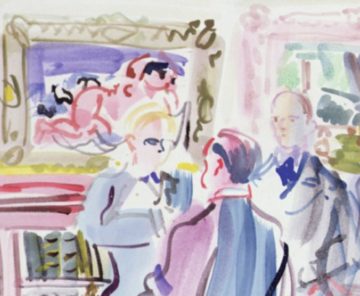Matthew Mutter in The Hedgehog Review:
 For years, I played basketball with a humanities skeptic. He was an endowment manager at the Ivy League university from which he had graduated with a degree in economics. He knew I was a professor of literature, and one day he asked what I taught—and did I by any chance teach Moby-Dick? I nodded, and he said, “You don’t believe the hype, do you?” His proudest moment in college had come when, required to read the novel for a first-year class, he developed a firm belief that Moby-Dick’s reputation was explainable chiefly by its obscurity. The emperor had no clothes: The novel was taught because it was revered, and revered because it was taught. Baffled readers took their incomprehension as a sign of its elusive greatness. Teachers followed blind tradition and enjoyed the aura of solemn stupefaction.
For years, I played basketball with a humanities skeptic. He was an endowment manager at the Ivy League university from which he had graduated with a degree in economics. He knew I was a professor of literature, and one day he asked what I taught—and did I by any chance teach Moby-Dick? I nodded, and he said, “You don’t believe the hype, do you?” His proudest moment in college had come when, required to read the novel for a first-year class, he developed a firm belief that Moby-Dick’s reputation was explainable chiefly by its obscurity. The emperor had no clothes: The novel was taught because it was revered, and revered because it was taught. Baffled readers took their incomprehension as a sign of its elusive greatness. Teachers followed blind tradition and enjoyed the aura of solemn stupefaction.
“Now mystery had brushed them with her wing; they had heard the voice of authority”: So Virginia Woolf’s Londoners felt when they spotted a car, its windows curtained, transporting royalty. The intimations of majesty are pleasant, but there is a deeper pleasure in unmasking authority. The memory of pulling back the curtain still pleased my basketball partner fifteen years later.
More here.
